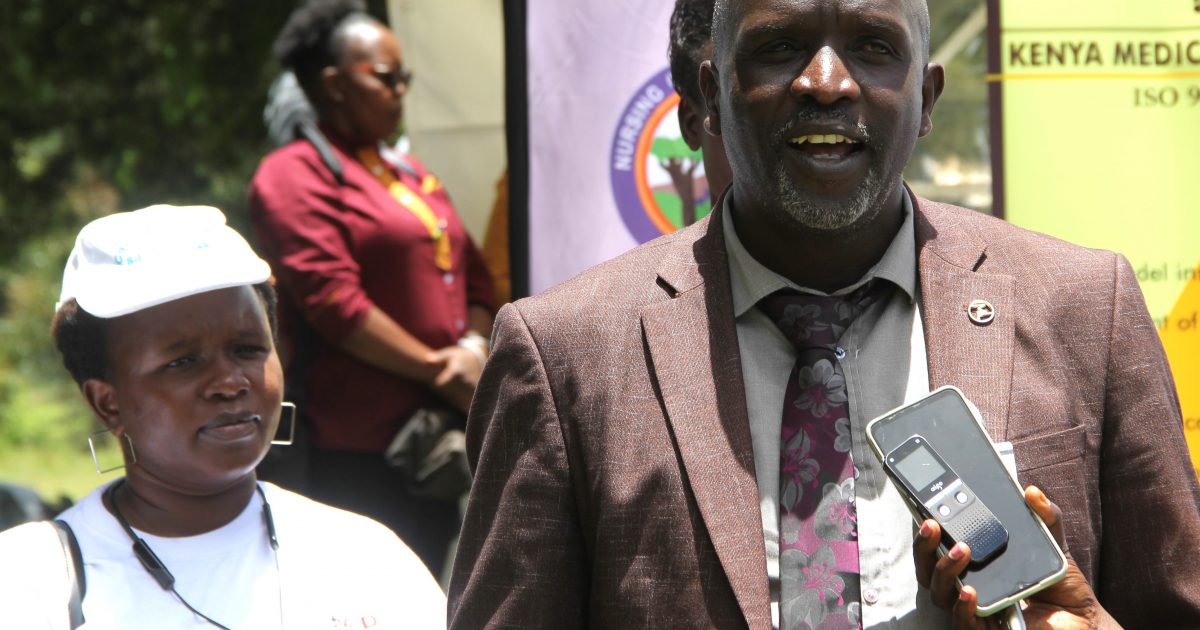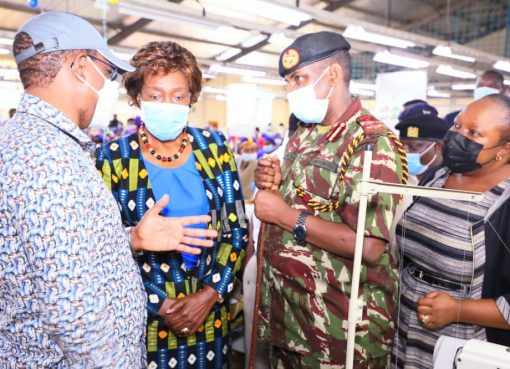There is need to contentiously educate and sensitize Kenyans on the importance of going for medical check-ups and screening at least once every year.
This is the only way that diseases such as cancer that have become rampant could be treated and managed at an early stage.
Dr Joyfrida Chepchumba, the Programme Officer, Treatment, Palliative Care, and Survivorship at the National Cancer Control Programme says, “We need to catch cancer at an early stage so that treatment is effectively minimizing the loss of life”.
Dr Chepchumba adds that medical screening helps find some types of cancer at an early stage when they may have a better prognosis.
“Being diagnosed with cancer is not a death sentence. Early screening and starting treatment on time saves lives, and the survivors will continue living fruitful lives,” she says, adding that the government has invested heavily in cancer care and encouraged people to go for screening since those diagnosed with the disease would get treatment locally.
“Treatment is available in Kenya, there will be no need to travel overseas for cancer treatment. PET CT scan or radiotherapy is readily available in the three referral hospitals, Kenyatta National Hospital, Moi Teaching and Referral Hospital, and Kenyatta University Teaching Referral and Research Hospital, says Dr Chepchumba
She adds that the country has 10 other regional cancer centres, with Mombasa, Nakuru, and Garissa offering radiotherapy, chemotherapy, and surgery, while Kakamega, Kisumu, Embu, and Nyeri have chemotherapy and surgery with radiotherapy coming soon.
Dr Chepchumba said although breast cancer was the leading in the country with 5000 cases being reported annually, cervical cancer with 4000 cases reported annually causes more deaths because it is very aggressive.
“We lose many women with cervical cancer because the disease is very aggressive, but it can be managed and treated effectively with early screening and diagnosis,” she explains.
Dr Chepchumba made the remarks during a medical screening camp at Drys farm in Ainabkoi sub-county of Uasin Gishu county where more than 2000 residents benefited from free screening and treatment.
She was accompanied by KUTRRH Deputy Director of Clinical Services Dr. Kerama Onyimbo and Uasin Gishu County Director of Health Dr. Evans Kiprotich.
The medic encouraged men particularly those aged 45 years and above to go for screening, not only for prostate but also for colorectal and pancreatic cancers.
At the same time, she urged parents to ensure their girls aged 10 to 14 years get vaccinated for the human papillomavirus (HPV) that is available in all public hospitals.
She said HPV was the only cancer that could be prevented at this point, “when the girls become sexually active, they will be susceptible to be exposed to HPV, but this will not transform into cancer if they are vaccinated,” assured the medic.
She assured that the vaccine was safe without any side effects with no issue raised from the girls so far vaccinated since it was introduced in 2019.
Following some resistance when the vaccine was introduced, samples were taken for analysis at the quality control lab in KNH, it was tested and certified safe without any family planning hormones, it neither causes infertility nor impotence, she adds.
In his remarks, Dr. Kiprotich said as a county, they initiated an RRI to ensure all girls within the age bracket get the HPV vaccine, “what is wrong with our girls getting the vaccine that would prevent them from getting cancer in their later lives?”
He however said there was a need for men to be encouraged to go for screening because a majority of them waited until they stopped passing urine to go to hospital.
“Prostate enlargement can be diagnosed early through PSA testing and managed, but majority of our men rarely go for testing,” noted Dr Kiprotich.
He adds that from numerous medical camp screenings done in the county, it emerged that demand for health services was huge hence the need to put in place strategies that would ensure better access to healthcare.
“We have realized there is an increase of hypertensive cases in our communities that the affected may not be aware of. Last year we only screened 4000 mothers out of a population of more than 40,000 women of reproductive age, indicating a serious gap. We have also realized that most men do not go for prostate enlargement check-ups, and will only go the hospital when the urine is completely blocked,” he said.
“The issue of prostate enlargement is largely a private affair for men and because of the stigma attached to it, they will only come to the hospital when they realize the urine is completely blocked,” he added.
By Kiptanui Cherono





